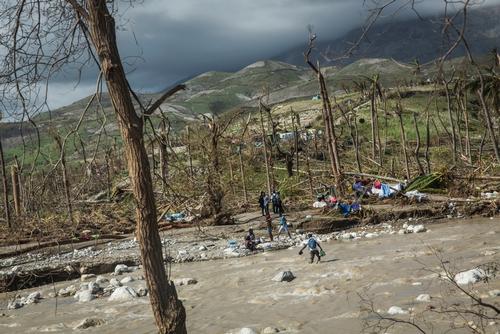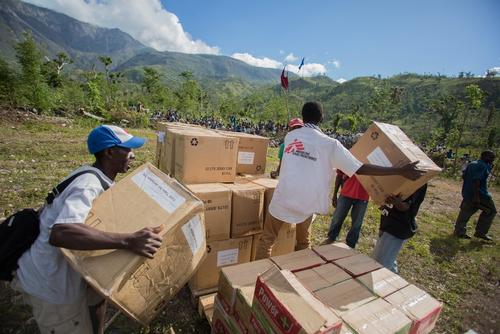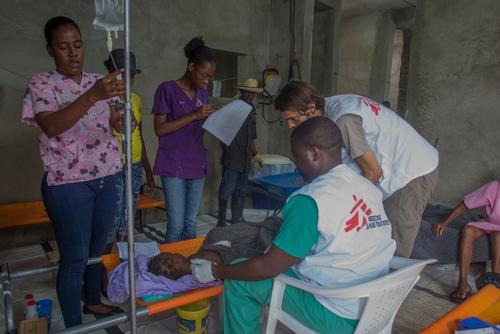MSF teams are treating people for cholera, injuries and other medical conditions and are providing support to medical facilities in the aftermath of Hurricane Matthew.
Many communities along the coast in southern Haiti, as well as inland in the Grande Anse department, were very badly affected by the hurricane. These are areas where basic water and sanitation were already insufficient, and healthcare provision was often weak and under-funded. The health risks now facing local people have greatly increased after the loss of lives and the damage and destruction of homes, health facilities and roads.
In Port-à-Piment, in the South department, an MSF team treated 87 cholera patients on 11 October, many of them from Chardonnière and from Port-à-Piment. MSF is building a 150-bed cholera treatment centre in Port-à-Piment. The team have treated a total of 77 people for injuries since first arriving in the town.
In Les Anglais, a team treated 16 people for cholera and also people for injuries. In Jérémie, more than 450 injured patients were treated over a period of three days. MSF is supporting the city's Saint Antoine hospital and is running a mobile clinic in the area.
In Petit Trou, in Nippes department, two local medical centres were damaged by the hurricane. An MSF mobile clinic has treated about 400 patients so far in Petit Trou and elsewhere in Nippes. The medical conditions people presented with included urinary tract infections, hurricane-related injuries, fevers, skin infections and diarrhoea.
In the Artibonite and Northwest departments, MSF is planning to provide tents, beds and medical supplies to medical facilities that were damaged. Teams are also conducting assessments in the southeast and are continuing epidemiological surveillance in the West department and the Port-au-Prince metropolitan area.
MSF teams continue to prioritize reaching areas where needs have not yet been assessed and that aid has not yet reached.
MSF runs multiple projects in the Port-au-Prince metropolitan area: the burns unit in Drouillard Hospital, the Martissant 25 emergency centre, the Nap Kenbe Emergency Surgical Hospital, the Centre de Reference des Urgences en Obstétrique (CRUO), the Pran Men'm clinic for survivors of sexual and gender-based violence, and the Figaro cholera treatment centre that can be operational in a few hours. MSF also supports the Diquini centre for cholera patients.





